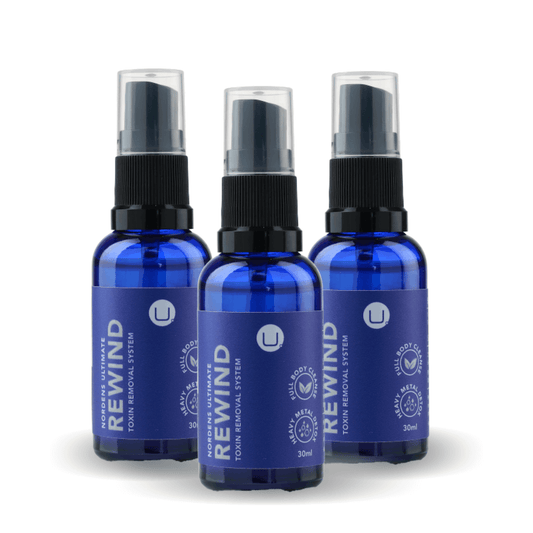You know what it’s like - you have a great life but intense thoughts and feelings cripple your joy and you worry yourself to death about a thing. It’s often unbidden and just won’t turn off. This kind of anxiety is robbing you of feeling at ease with yourself and where you are in life.
Mind Full or Mindful?
Psychologists call the labyrinthine thinking that both produces and feeds anxiety ‘monkey-mind’ mode because your thoughts are as effective as a roomful of drunken monkeys bounding pointlessly about. Some liken it to a hamster wheel, moving but going nowhere. Some call it ‘white noise’ because it's always there, in the background, running like the ticker tape at the bottom of the newsreel in a never-ending stream of negative information that just won’t stop.
When your thoughts are left to run amok, you just frighten yourself all by yourself while you go nowhere slowly in a mindless state of auto-pilot. A mind full of worrisome thoughts robs you of the life you could be enjoying and mindfulness can go a long way in getting you there.
Anxiety Begets Anxiety
Anxiety is worry on steroids and it has people trapped in their heads. Willpower doesn’t work to arrest anxiety because it doesn’t account for how the brain works and how it gets wired to keep you in a state of anxiety.
Jud Brewer of Brown University's Mindfulness Centre maintains that worrying about a matter activates the reward centre of the brain, giving a false reading as it imagines you’re doing something when you actually aren’t. “It can give people a sense of control even though they don’t have any more control than if they didn’t worry,” he said.
“The picture we have is that mindfulness practice increases one’s ability to recruit higher order, pre-frontal cortex regions in order to down-regulate lower-order brain activity.” – Adrienne Taren, a researcher of mindfulness at the University of Pittsburgh.
Constant worry feeds the anxious mind with a rich tapestry of non-realities, like a horror movie or vivid dream that you can’t escape from. The part of the brain you’re activating regulates the fight-flight-fear-freeze mechanism. Some euphemistically call it an ‘Amygdala Hijacking’. No one has to be held ransom to a mind intent on causing harm, but you, and only you, can free yourself from this dysregulation.

Mindfulness Retrains the Brain
Instead of letting anxious thoughts and feelings ambush you, mindfulness practice helps you experience a new feeling of control that is positive, life-affirming, and free of habitual negativity.
Those who understand Mindfulness cope better with challenges as they arise and increase delight in times of joy. In this way, anxiety can be put into its proper place and become a smaller part of their lives.
Mindfulness frees people because it trains you to live more in the present than get lost in guilt over the past or frightening yourself with a hundred ‘what-if’ scenarios you concoct about the future.
Don’t think of mindfulness as a quick fix. It's training to carve out new neural pathways, which cause your old thinking pathways to gradually disappear, just as a well-worn path in the grass disappears when people stop taking that route. Just as resistance training strengthens muscles, mindfulness practice strengthens psychological flexibility and resilience.
“Mindfulness is like taking your brain for a virtual walk. Like our bodies, our minds need time to recover after a difficult workout. It is a way to ‘walk’ it off – catch your breath, settle your muscles, and be fully present. Notice what you see, smell, feel, and hear. Be in the moment as you gain insight and nurture yourself. Even a few seconds or minutes is enough. Don’t overthink – it isn’t the formal practice of meditation … and you don’t need sneakers.” – Lori Maney Lentini, author
A Mindful Breathing Practice
There are many different ways to practice mindfulness. Here is a simple exercise that you can try:
- Find a quiet place where you will not be disturbed.
- Sit in a comfortable position with your back straight.
- Close your eyes and take a few deep breaths.
- Focus your attention on your breath.
- Notice the rise and fall of your chest as you breathe in and out.
- If your mind wanders, gently bring it back to your breath.
- Continue this practice for 5-10 minutes.
You can also practice mindfulness in other activities, such as walking, eating, or working. When you are walking, pay attention to the sensations in your feet and legs as you move. When you are eating, pay attention to the taste, texture, and smell of your food. When you are working, pay attention to your thoughts and feelings as you complete your tasks.
Tips for Practicing Mindfulness
Here are a few tips for practicing mindfulness:
- Be patient: It takes time and practice to learn to be mindful. Don't get discouraged if your mind wanders. Just gently bring it back to the present moment.
- Be non-judgmental: Don't judge your thoughts or feelings. Just observe them without judgment.
- Be accepting: Accept the present moment for what it is, even if it is uncomfortable for you or even unpleasant.
- Be understanding with yourself: Don't chastise yourself if you struggle to be mindful. Just keep practicing.

Natural Remedies for Anxiety and Focus
Without dismissing medications as some anxiety disorders may require, there are natural remedies to assist you in your aim to become more cool, calm and collected.
- Omega 3 works to quell inflammation which is the precursor to sleep issues, anxiety and depression.
- Herbal tinctures featuring GABA (gamma-aminobutyric acid) works to reduce neuronal excitability through your entire nervous system.
Benefits of Mindfulness
- Reduced stress and anxiety
- Improved focus and concentration
- Increased self-awareness
- Reduced chronic pain
- Improved sleep quality
- Boosted mood
- Increased empathy and compassion
- Improved relationships
- Reduced addictive behaviors
Summary: Mindfulness is the practice of paying attention to the present moment without judgment. It is a simple but powerful practice that can have a number of benefits for your physical and mental health. If you are new to mindfulness, start with a few minutes of practice each day and gradually increase the amount of time you spend practicing. With practice, you will learn to be more mindful in all aspects of your life.
Feel free to explore the Cures & Creams online store and get yourself stocked with the natural remedies that are just right for you and your loved ones.
Take advantage of running specials, reward points and repeat order subscription benefits.
Disclaimer: This article is for informational purposes only and does not constitute professional medical or psychological advice. Please consult with a qualified healthcare professional for personalized guidance.







1 comment
An interesting read with some nice suggestions I’d like to try! Thanks for the article!